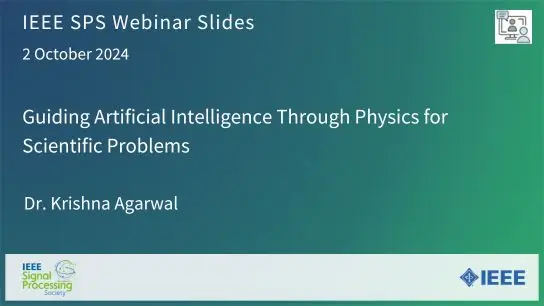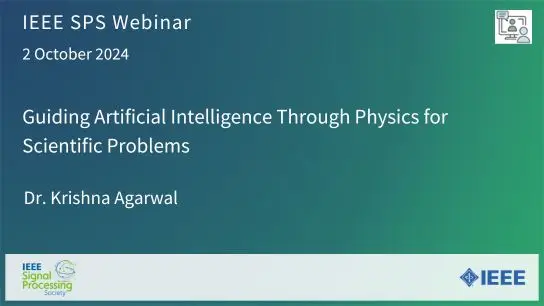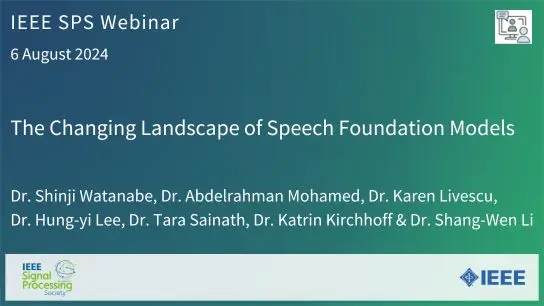Slides for: Channel State Information Acquisition for Intelligent Reflecting Surface-Assisted mmWave/THz Systems
Dr. Peilan Wang, Dr. Jun Fang
-
Members: FreeSPS
IEEE Members: $11.00
Non-members: $15.00Pages/Slides: 49
14 Oct 2022
Intelligent reflecting surface, or IRS, has recently emerged as a promising paradigm for future wireless communications. Owing to its remarkable capability in reshaping the propagation environment, IRS has a great potential to boost spectral efficiency, mitigate interference, and enhance physical security. Channel state information acquisition is essential for the operation of IRS-assisted communication systems, which is very challenging due to the massive channel size and the passive nature of IRS. This seminar focuses on channel estimation for IRS-assisted millimeter-wave/terahertz systems. We first introduce the concept of cascade channel that is used to model the multiplicative relation between the two physical channels, namely the base station-to-IRS and IRS-to-user channels. Many transceivers optimization tasks, such as joint active and passive beamforming, require the knowledge of the cascade channel matrix, which in general, has a very large dimension and would entail a substantial amount of training data for estimation. To address this problem, we unveil some inherent sparse/low-rank structure of millimeter-wave/terahertz cascade channels. This enables the development of efficient compressed sensing-based channel estimation and beam alignment methods with significantly reduced training requirement. At the end of this talk, we will discuss some future research directions and challenges related to this topic.


